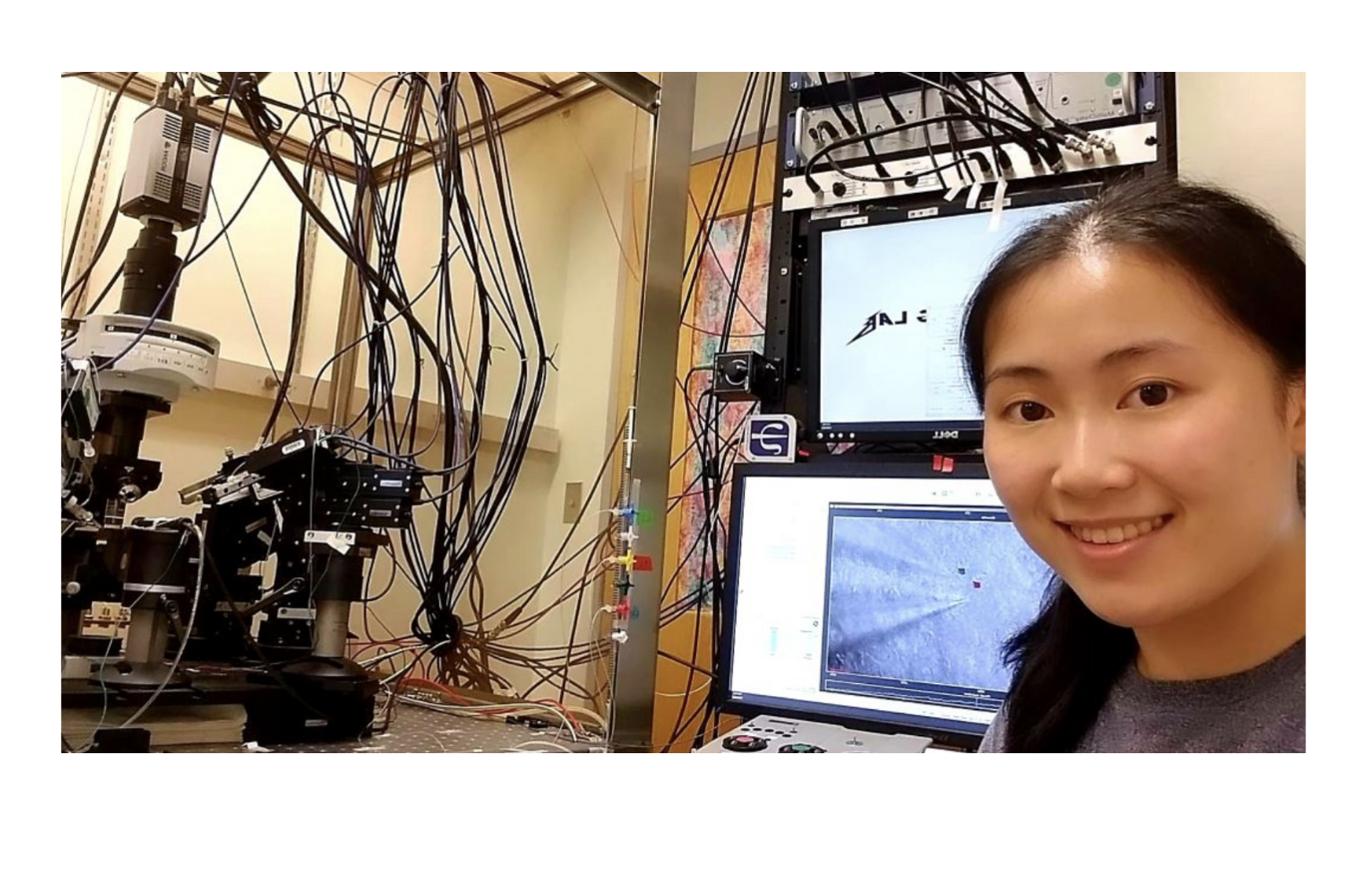
Melody Cheng ('25), a Neuroscience major and CURF Research Peer Advisor, conducted research on epilepsy, a chronic disorder that causes recurrent seizures as a result of abnormal electrical activity in the brain. Melody was mentored by Dr. Ethan Goldberg (Departments of Neurology and Neuroscience), and this research was funded by the College Alumni Society Undergraduate Research Grant.
In the Goldberg NeuroLab, we investigate rare epileptic disorders using a variety of approaches. There are two overarching projects I’ve been working on; one studies the underlying mechanisms of febrile seizures and one studies the mechanistic bases for epilepsies related to KCNC1, a gene encoding for a voltage-gated potassium ion channel. Over the course of the past three years, I’ve been honing my skills in electrophysiology. Expanding my skillset has allowed me to conduct a series of very challenging experiments independently and make my own intellectual contributions to the lab’s goals. I’ve asked and answered questions on topics that enable me to both build upon and branch out from my previous work.
When getting into research, many folks will tell you one of the most exciting aspects is the chance to create knowledge that doesn’t yet exist (or from an alternate philosophical stance, knowledge that hasn’t yet been discovered by anyone else). For those in neuroscience research, people will appeal to its ‘meta-ness.’ In my case, this was especially true - being hospitalized for febrile seizures kickstarted my interest in studying the brain. At 13 months old, my first seizure coincides with the time period in which recurrent seizures begin in patients with Dravet syndrome, which we use in a mouse model for our febrile seizures project. Recording human neurons in resected tissue from epilepsy patients at the Children’s Hospital of Philadelphia (CHOP) reveals many similarities to our mouse models.
What I love most about research is that it’s nothing like anything else I’ve ever done before. It pushes me to my limits in ways that even the most rigorous courses cannot, and forces me out of my comfort zone by making me confront information that is not yet realized. Before Penn, I had no significant research experience. My success testifies to the culture of pedagogy the lab cultivates. Most scientists say electrophysiology can’t be taught to undergraduates. Hearing this from my mentor, I saw it as an invitation to be the exception. Somewhere in the process of uncovering the mysteries of ion channel disorders, I found myself. Sitting in front of the electrophysiology rig, everything fades away, and I have free reign to seek out the ‘whats,’ ‘whys,’ and ‘hows’ that can’t be Googled or read in a journal.
My time in the Goldberg NeuroLab has cemented my decision to specialize in pediatric neurology. It is exceptionally empowering to have a tangible impact on the wellbeing of young people who have their entire lives ahead of them, and to be someone around whom kids can feel safe, supported, and empowered to be their truest selves.
Interested in reading more first-hand accounts about undergraduate research? Check out the other experiences featured on our Student News Page and Social Media!
Related Articles
